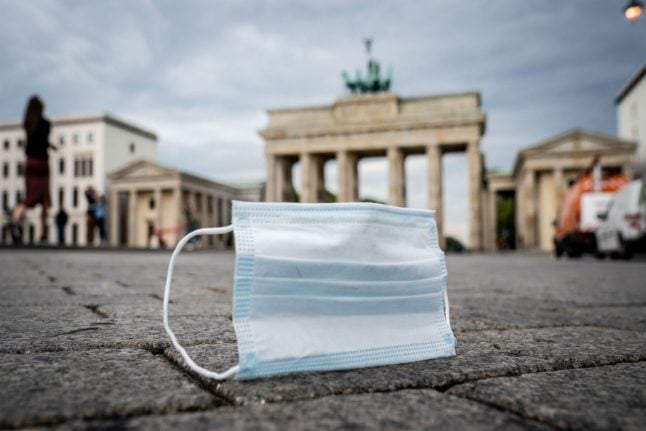The number of coronavirus cases in the capital reached 52.8 per 100,000 residents in the last seven days, according to the Berlin Senate.
That puts the whole city-state in the classification of a risk area, which the Robert Koch Institute (RKI) defines as more than 50 cases per 100,000 residents within a seven-day period.
READ ALSO: MAPS: Where are the current Covid-19 hotspots right now?
Usually travellers coming from such areas are subject to a 14-day quarantine within Germany.
As of 4:30 pm, 498 people were confirmed to be infected with the virus over the last 24 hours, according to RKI data.
The district of Neukölln still has the highest seven-day incidence value, currently at 114.3 per 100,000 residents, followed by Mitte with 78.3 and Tempelhof-Schöneberg with 72.4.
Within the past 24 hours alone, Neukölln reported 150 new infections, followed by 59 in Mitte and 65 in Tempelhof-Schöneberg.
Since the beginning of the pandemic, a total of 17,112 people in Berlin have become infected with the virus, 13,965 who have reported themselves to have recovered from the disease. A total of 233 people have died.
Currently there are reported to be 2,914 people in Berlin infected with the virus.
In response to the growing number of infections, Berlin’s Senate has mandated that bars, restaurants and other establishments close between the hours of 11pm and 6am. The new measure and others will come into effect this Saturday.
Travellers from Berlin’s most highly infected districts are also no longer allowed to stay at hotels or pensions around Germany, with the exception of Bremen and Thuringia.
READ ALSO: Around Germany: What you need to know about current Covid-19 travel restrictions



 Please whitelist us to continue reading.
Please whitelist us to continue reading.
Member comments